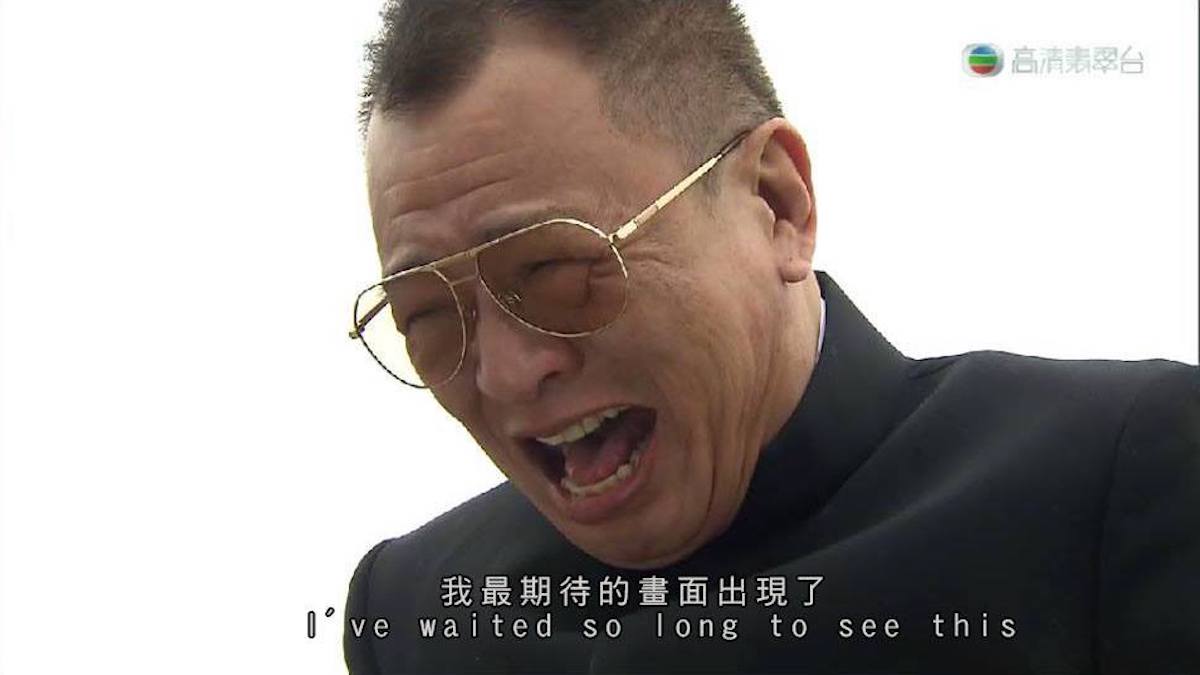About a year ago, I was chatting with Astro Hsu at Horaka Cafe in Wanhua District, Taipei. He asked me for my opinion on the further development of Blocktrend. My view is that the Blocktrend should be driven by personal branding and values, and it’s not suitable to increase the number of writers or accept commercial sponsorships. I suggested Astro to translate his articles into English to tap into the overseas market. This approach would not only preserve the purity of self-media but also add a whole new dimension of growth by picking the “low-hanging fruit.”

While it’s true that one shouldn’t be overly self-important, underestimating oneself isn’t necessarily good either. Taiwan and Hong Kong often take satisfaction in imported goods, watching Hollywood movies, and reading translated books, sometimes underestimating the quality and value of their own works. In fact, many excellent works from both places are only limited to local markets due to factors such as cultural and language barriers, market inertia, and sales channels. Blocktrend is a case in point; the quality of its articles is already world-class and holds its own in the English market, but it has been confined to the Tower of Babel to maintain focus.
Although I can’t compare myself to Astro, I am still a diligent writer. I’ve long wanted to translate my own works, but unfortunately, I haven’t been able to achieve this for years. However, ChatGPT has recently inspired me to realize my long-held dream. From now on, I have managed to publish English versions of my weekly articles, which is the one you’re reading, almost simultaneously.
Google, DeepL and ChatGPT: A Comparison
AI translation is not new, and the long-established Google Translate has already become quite impressive, while DeepL, which focuses on translation, is even better. However, I haven’t used AI for translating my works until now, mainly due to a combination of inherent laziness and the slight lack of quality that has always held me back.
ChatGPT has already gained enough attention, and I don’t want to further glorify it. In fact, the development of AI and other technologies is a gradual accumulation, and even if there is a breakthrough point, it is not due to ChatGPT alone but rather the result of AI technology continuously improving and just surpassing the critical threshold.
The quality of translations for ordinary articles by Google Translate, DeepL, and ChatGPT is quite similar, so comparing them might not be very meaningful. Therefore, I have chosen a few paragraphs with Cantonese and slang, which are particularly challenging, to illustrate the differences among the three.
左膠的自省:NFT 書難以理解,是因為沒能打破「魚蛋論」定律
跟作家朋友 Alice 電郵拜年,雙方道賀也閒聊,自然地聊到 NFT 書。Alice 說「弱弱一問,咁買 NFT 書得到嘅係咪即係個唔同款嘅封面……」
這句話非同小可。首先,「弱弱一問」等同此地無銀,當一個問題真的很弱,提問者才不會加上這個前言。
ckxpress.com
Zuojiao’s introspection: NFT books are difficult to understand because they failed to break the law of “fish egg theory”
Emailed New Year’s greetings with writer friend Alice, both congratulated and chatted, and naturally talked about NFT books. Alice said, “A weak question, so what you get when you buy an NFT book is a cover of a different style…”
This sentence is no small matter. First of all, “weak and weak question” means that there is no money here. When a question is really weak, the questioner will not add this preface.
Google Translate
Left glue’s introspection: NFT books are difficult to understand because they fail to break the law of “fish egg theory“
When I emailed Alice, a writer friend, to congratulate her and chat, I naturally talked about NFT books. Alice said, “I’m sorry, but the NFT book I bought is a different cover ……”.
This is a very important statement. First of all, “weak question” is the same as having no money here. When a question is really weak, the questioner will not add this preamble.
DeepL
“左膠”: Google surrenders and uses Pinyin; DeepL translates it as “left glue” 🫠
“弱弱一問”: Google’s “a weak question” is too Chinglish, while DeepL’s “I’m sorry” is much more natural. However, when “弱弱一問” appears for the second time, both have used different translations, causing errors in context, and Google’s “weak and weak question” is even more laughable.
“此地無銀”: Google’s “there is no money here” and DeepL’s “having no money here” are theoretically correct, but foreigners definitely won’t understand.
Now let’s see ChatGPT’s performance:
Self-reflection of the leftists: The difficulty in understanding NFT books is due to the failure to break the “fish-egg theory” law
During my New Year’s email exchange with writer friend Alice, we naturally talked about NFT books. Alice asked, “Can I ask if buying an NFT book is like getting a different cover?”
This statement is not insignificant. Firstly, “Can I ask” is equivalent to “I don’t have much to contribute here.” This indicates that the question is not trivial.
ChatGPT
“左膠” is translated as leftist; I don’t know if translation experts have any better suggestions, but at least I can’t think of any. “弱弱一問” became “Can I ask,” which is a bit light but quite natural. Perhaps there isn’t a more corresponding phrase in English, after all, “弱弱一問” could be considered slang. Whether it’s luck or skill, the second time the phrase appears, it’s also translated as “Can I ask,” correctly expressing the meaning.
The most challenging phrase, “此地無銀”, was cleverly avoided and rewritten according to the context as “I don’t have much to contribute here,” which is pretty good.
The only disappointment is that I never saw “魚蛋” correctly translated as “fish ball,” disregarding Hong Kong culture.
Overall, ChatGPT gives me the impression of being able to digest the meaning of entire paragraphs and rewrite them in English, while existing AI translation tools are more about “breaking down words and interpreting their meanings,” especially in the case of Google.
Last week, I tried using ChatGPT to translate the article “Solution looking for a problem 作為創業路徑” and one paragraph in particular illustrates the observation above. The article mentions “麥兜” and “麥太”, and while Google terribly translated her name as “Mai Tai,” DeepL translated it as the relatively accurate “Mrs. Mak,” and ChatGPT surprisingly understood to translate it as “McDull’s mother,” which is quite interesting.
If you’re interested in learning more, you can put the following short paragraph into various translation tools and share your observations in the comments:
麥嘜漫畫有這樣一個小故事。麥太問麥兜,為甚麼總是吃很多飯。心地善良的麥兜說,吃得飯多就有力氣,就可以幫別人打開瓶子了。
1/100,000 the cost
Emboldened, I took another step and asked ChatGPT to help me translate two of my books.
Thanks to the open-source community, I cloned bilingual_book_maker from GitHub, set up the environment, and threw the entire book “區塊鏈社會學:金錢、媒體與民主的再想像” at the gpt-3.5-turbo API for translation.
Since I didn’t know how long it would take, I deliberately started the process at 3a.m. before going to sleep, expecting it to run slowly for several hours and check the progress when I woke up. However, I couldn’t help but stare at the screen and observe the quality of the translation. Without even falling asleep, the 100,000-word translation was completed in 1 hour, 4 minutes, and 55 seconds, with all sentences being smooth and a 99% usability rate. There were only a few errors, mostly in names. Then I checked the cost – unbelievably, it was only $0.33.
Using the same method, I translated the approximately 80,000-word book “所謂「我不投資」,就是 all in 在法定貨幣” with similar quality. This time it took 1 hour, 36 minutes, and 43 seconds, at a cost of $0.36.
In comparison, traditional human translation takes about a month, not counting the time spent on communication and clarifying the original text’s meaning. As for the cost, the average price for traditional translation is about 1.2 HKD (4.5 TWD) per word. In other words, translating “區塊鏈社會學:金錢、媒體與民主的再想像” would cost over 200,000 HKD, which is 100,000 times the cost of AI translation. I don’t mean to demean professional translators – they do need to invest a lot of time and effort. However, the income a book generates for me is only tens of thousands of HKD, with an average income of less than 0.4 HKD (1.5 TWD) per word. Even if I were to use all my income for translation, I still couldn’t afford the market price. As a result, the vast majority of works in the world remain untranslated, but AI is about to change that.
The cost and efficiency gap between AI and human translation is too vast, and the discussion of AI causing unemployment will undoubtedly resurface. It’s terrifying to see a lifetime of skill easily replaced by machines overnight, and society must pay attention. However, there is another optimistic possibility: when the quality of AI translation is good enough, the amount of translated text will be a thousand or even ten thousand times greater than before. Although 99% of the process will be handled by AI, the remaining 1% of demand for “artificial AI” may be much larger than the entire current translation market.
In the end, regardless of one’s profession, when facing AI, one must either make good use of it or possess the strength to reach that 1% threshold where even AI cannot, in order to avoid being eliminated.
AI Translation Tipping Point Has Arrived
I’m not sure whether the claim that “AI singularity has arrived” is an exaggeration, but one thing is certain: as an author using ChatGPT to translate my works on blockchain popularization, its quality has already surpassed my acceptable threshold (at least for translating into English), its speed is sufficient for simultaneous publication, and the cost is incredibly low.
As I was writing this, I just received an email from OpenAI titled “GPT-4 is here.” I immediately switched to the GPT-4 model and translated the above paragraph again. The translated title was:
Self-reflection of the Leftist: NFT books are hard to understand because they fail to break the “Fishball Theory” law GPT-4
The scene I had been looking forward to finally appeared.
Extended reading
- We are the AI proletariat in the age of ChatGPT and Midjourney
- 人工智能不一定好,以人為本不見得對
- NFTs as a carrier of karma: The usefulness of the useless is the greatest use
My articles are not put behind a paywall and are all open for reading. If you like this article, please collect its Writing NFT to support writing and preserve journalism.


Leave a Reply